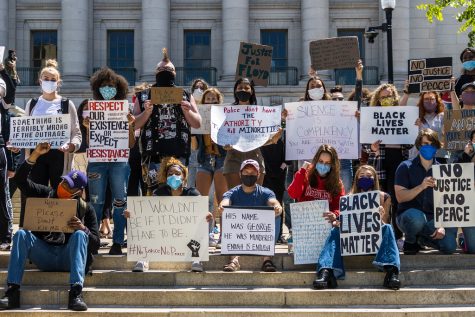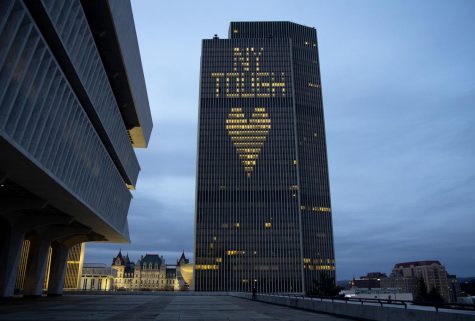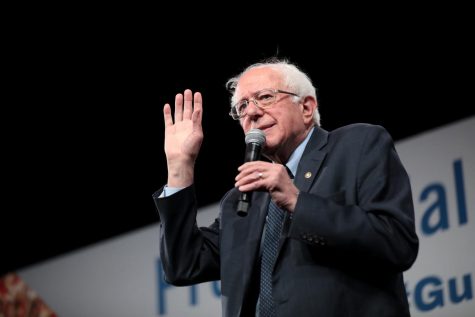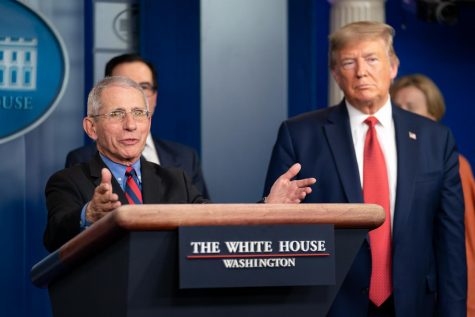Representation in Politics Hindered by Electability
March 11, 2020
As the race for the 2020 Democratic presidential nominee narrows down, Sen. Elizabeth Warren (D-Mass.), who was considered the most prominent female candidate this year, has dropped out. Her exit left many who had hoped that this would be the year of the first female president of the United States disappointed.
Warren’s exit is the last of a record-breaking number of female candidates for the presidential nomination. In fact, this year’s election of candidates for the Democratic party included a record-breaking number of people of color as well. Additionally, former South Bend Mayor Pete Buttigieg became the first openly gay nominee for president.
Warren and Sen. Amy Klobuchar each took the debate stages as prominent candidates for this year’s Democratic nominee. Both were endorsed by The New York Times for the candidacy. Buttigieg achieved unexpected success by narrowly winning the delegate count in the Iowa caucus on Feb. 3.
Despite this, none of these diverse candidates were able to reach the finish line. With President Donald Trump in office, many Democrats prioritized electability over policy in their candidate so as to ensure a victory for the party.
Candidates of color often fell victim to the importance of electability this season. Julián Castro, former housing secretary and candidate for the Democratic nomination, noted that in order to win, the Democratic candidate would need to be able to sway “the white working class in the Midwest.”
Additionally, the many changes made by the Democratic National Committee (DNC) regarding debate eligibility were criticized for hindering diverse candidates with less financial support from being able to qualify.
The all too common notion that a woman could not be president — and thus presented an unnecessary risk — hindered many female candidates’ abilities to compete with their male counterparts.
Female candidates often received common criticisms in terms of likeability. Trump used this language when commenting on Warren dropping out. He denied that sexism played a role in her disappointing results in the primaries, blaming it on the fact that voters simply do not like her.
However, the very notion of likeability is often driven by sexism. Warren was often viewed as unlikeable when she attacked fellow candidates, such as former New York City Mayor Mike Bloomberg, during debates. These debates are practically made of vicious exchanges between candidates, for better or worse, but when a woman acts like this, it is unacceptable.
As The Atlantic explained, many Americans “still assume there is something unseemly about an angry woman.” Male candidates are rarely criticized on the same grounds.
There is far more at play in this year’s presidential election than the politics of gender. The movement that Bernie Sanders (D-Vt.) has fostered since his run in 2016 has catalyzed so many young people to urge a political revolution in our country. Former Vice President Joe Biden has emerged as a front-runner after a dramatic Super Tuesday.
While 2020 may not be the year of the first female president of the United States, the door is not closed. The work of each and every woman in politics matters. Having a presence in each election, debate and rally is an incredibly important step. Feminism is about awarding these women the opportunity to compete, just as anyone else, for the causes that they feel passionate about, no matter what it is.
Former Secretary of State Hillary Clinton made history during the last presidential election as the first female nominee for a major American political party. Though she did not win, her efforts were not lost on future female politicians.
In a new docuseries, Clinton remarked, “When I was a little girl, I never knew a woman who worked outside the home, except my teachers and the librarians at our library.”
Clinton’s campaign showed a generation of young girls that they could compete for the U.S. presidency. Though neither nominee for the presidency will be a woman this year, the efforts of Warren, Klobuchar and many more will continue to give hope for younger, aspiring female politicians.
The media still has a ways to go when it comes to its portrayal of women in politics. The expectations that women are held to remain unfair, though far better than they have been in history. Female politicians deserve to be taken as seriously as male politicians. With this, they do not deserve votes merely because they are women. This would be just as unfair. However, they do deserve the respect and consideration that any other candidate deserves.
Buttigieg’s run also remains important despite his loss. He made far more progress than anyone had expected for the mayor of a small town, regardless of his sexuality. Again, this is a generation that has now seen an openly gay politician make a significant run for the Democratic nomination.
So, this is a thank you to each candidate who entered the race to fight for what they believe in. Their decisions opened the door for further representation of diversity in politics. Though the winner of the 2020 presidential election will not represent this, the efforts of these candidates will not be lost to history.
Kelly Christ, FCRH ’21, is an English and psychology major from Long Island, N.Y.
Columnist volume 101, Editorial Director and Opinion Editor volume 102










If you want a picture to show with your comment, go get a gravatar.